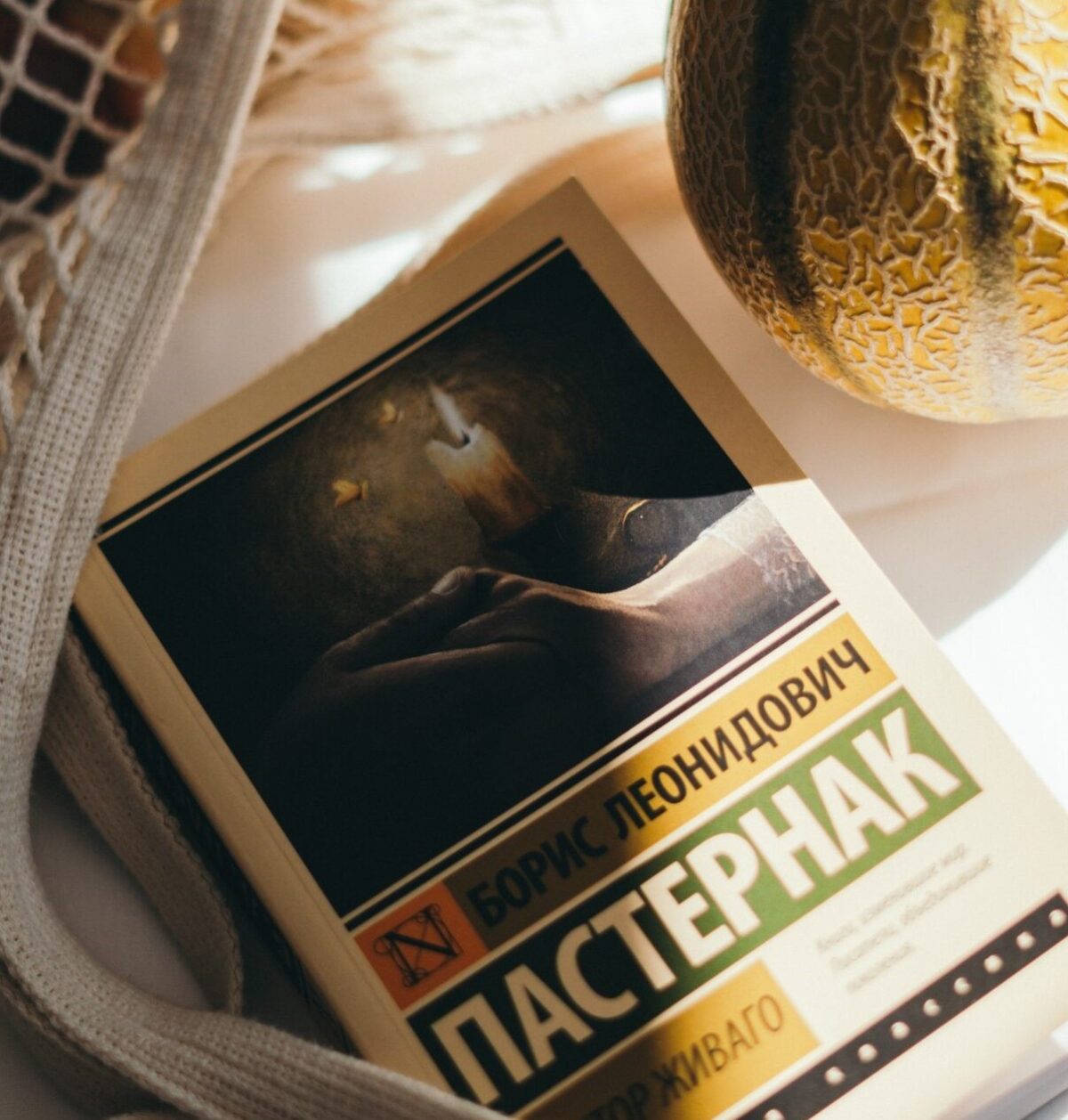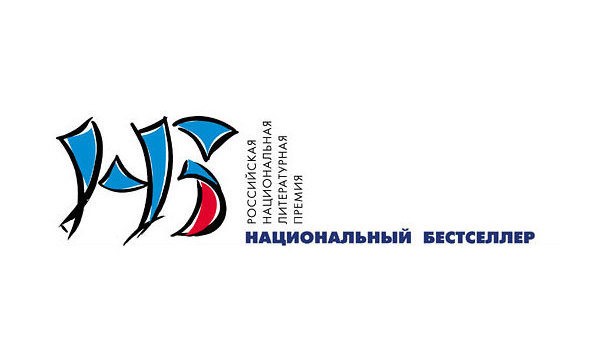
The Russian National Bestseller Prize is an annual literary prize awarded in St. Petersburg in June for the best novel written during a calendar year. It was established in 2001 by Konstantin Tublin, publisher, writer and founder of Limbus Press, and Viktor Toporov (1946-2013), Russian writer, translator and literary critic. The prize’s motto is “Wake Up Famous!” Проснуться знаменитым!
2022
In 2022, for the first time in 20 years, the National Bestseller Prize was not held in Russia. The Organizing Committee decided not to award the prize in 2022 and to cancel the award ceremony.
The shortlist includes 6 books:
Sergei Avilov. Kapibaru liubiat vse. M.: Gorodez, 2021.
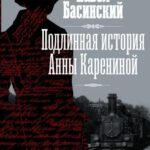 Pavel Basinskii. Podlinnaia istoriia Anny Kareninoi. M.: AST, 2022.
Pavel Basinskii. Podlinnaia istoriia Anny Kareninoi. M.: AST, 2022.
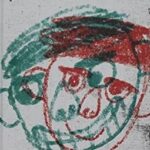 Islam Khanipaev. Tipa ya. Dnevnik superkrutogo voina. M: Alpina – non fikshn, 2021.
Islam Khanipaev. Tipa ya. Dnevnik superkrutogo voina. M: Alpina – non fikshn, 2021.
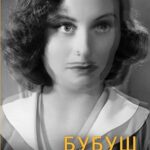 Iuliia Kisina. Bubush. M.: AST, 2021.
Iuliia Kisina. Bubush. M.: AST, 2021.
Kirill Riabov. Fashisty. M.: Gorodez, 2022.
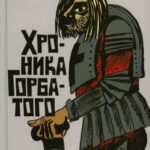
Sofiia Sinitskaia. Khronika Gorbatogo. M.: Limbus-press, 2022.
2021
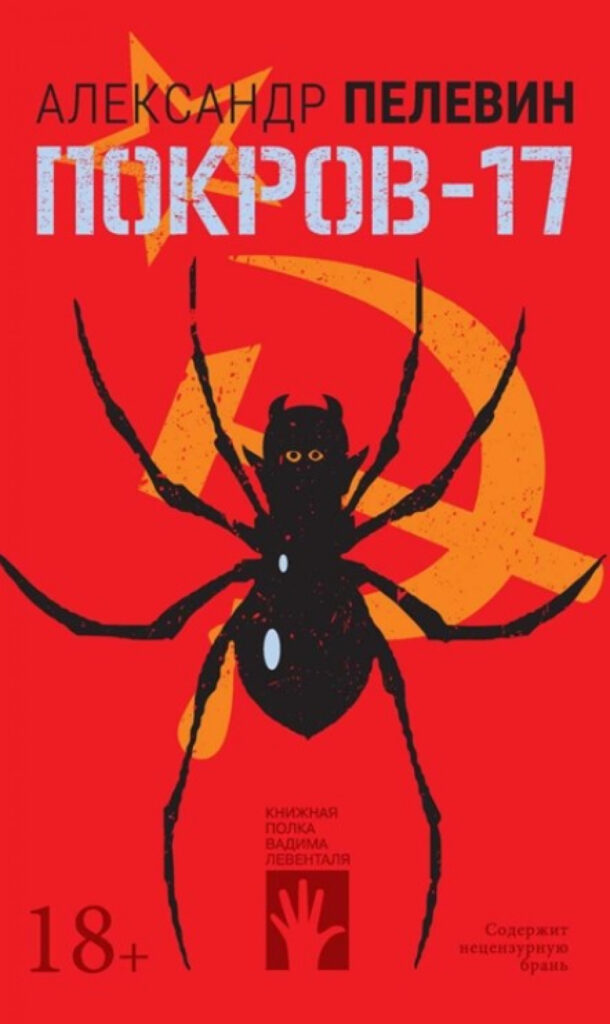
Alexander Pelevin. Pokrov-17.
The winner of the prestigious National Bestseller Award was announced in St. Petersburg on May 29th. The prize was awarded to the writer and journalist Alexander Pelevin for his novel “Pokrov-17”. Pelevin’s novel won the National Bestseller Award, but it also caused a controversy among critics. All in all, it is an entertaining story that combines Russian reality with mysticism, and the author manages to keep the reader’s attention until the very last page. It is October 1993 in Moscow. There is a standoff between the parliament and the new president, and the streets of Moscow are drenched in blood. Moscow journalist Andrei Tikhonov is sent to the city of Pokrov-17, a secret military zone, a place of intense fighting during the Second World War. From the first minutes, he encounters extraordinary events that take him out of ordinary life and into a kind of nightmarish war zone. The journalist desperately tries to understand what is happening in this closed zone and what are the monsters he meets on the streets around him. The novel is a story in which the main hero is scattered in time, drawn to the time of the great war. It ends unexpectedly… but we understand that it was destined to happen.
2020
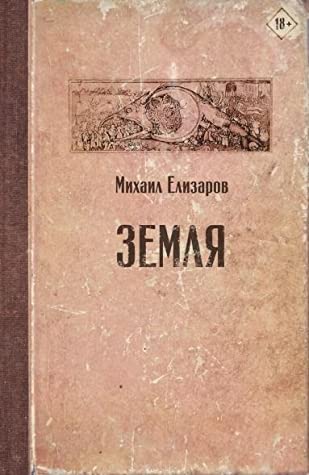
Mikhail Elizarov. Земля. (Zemlia) M.: Redakzia Eleny Shubinoi, 2019, 746 p.
After years of silence, Mikhail Elizarov has published Earth, a novel of extraordinary scope and scale. In the 746-page book, Elizarov continues his depiction of late Soviet and post-Soviet society, begun by his ferocious Librarian. The novel is about Volodya Krotyshev, known as “Krot”, a young man who has just finished his military service and lives and works in a cemetery. The plot is seemingly simple: this is the story of the life of the main character, Volodya. After completing his service in an army construction battalion, Volodya returns to his hometown of Rybninsk, where he hopes to get into university on his second try. However, the hero’s plans are interrupted by his half-brother Nikita, who invites Volodya to the city of Zagorsk to work in his funeral business. Since childhood Volodya has felt a mystical attraction to “graves”, even in kindergarten he dug “graves” for insects, so he accepted the offer. What makes this novel unusual, and what has aroused great interest among readers and made it a national bestseller, is that in addition to the events of everyday life and work at the cemetery, there are long philosophical conversations, reflections on life and death, time on earth and the hereafter, and destiny. Critics consider the novel “the first large-scale understanding of the Russian Thanatos,” but, as Elizarov notes, “the Earth is a very transcendent concept… My gut feeling is that this is what the Germans called ‘der Boden’.” In short, readers get a picture of coming of age in post-Soviet Russia, but in a Shakespearean sense: “And this, our life, freed from public haunting, finds tongues in trees, books in running streams, sermons in stones, and good in everything.”
2019
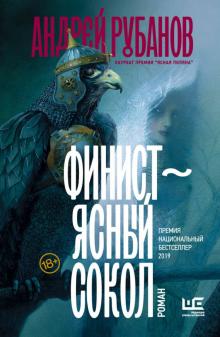 Andrei Rubanov. Финист – ясный сокол. (Finist -Yasnyi Sokol) M.: Redaktsiia Eleny Shubinoĭ, 2019, 576 p.
Andrei Rubanov. Финист – ясный сокол. (Finist -Yasnyi Sokol) M.: Redaktsiia Eleny Shubinoĭ, 2019, 576 p.
“Finist, the Bright Falcon” is a Russian fantasy novel. This novel about a female warrior is actually a Russian folk tale retold by Andrei Rybanov. The young girl Marya, in search of her true love Finist the Falcon traveled around the earth and reached the sky. Casual acquaintances did not believe that Marya would find her Finist, but they helped her on her way. A whole group of strange characters from Russian fairy tales appeared: kikimory, serpents, shishigi, mavki, leshaki, anchutki and werewolves. Three men along the way fell in love with Marya and helped her. The first is the skomoroch Ivan Koren’, who witnessed the very first meeting between the maiden Marya and Finist. The second is the warrior Ivan Remen’, a warlord who led the army to kill the ancient serpent and met Marya in worn iron boots at her grandmother Yaga’s hut. The third is Nightingale, who was banished from the heavenly city of Vertograd and longed for his homeland. It was he who was destined to deliver Marya to her lover, and it was he who would tell the tale of the blacksmith’s daughter.
2018
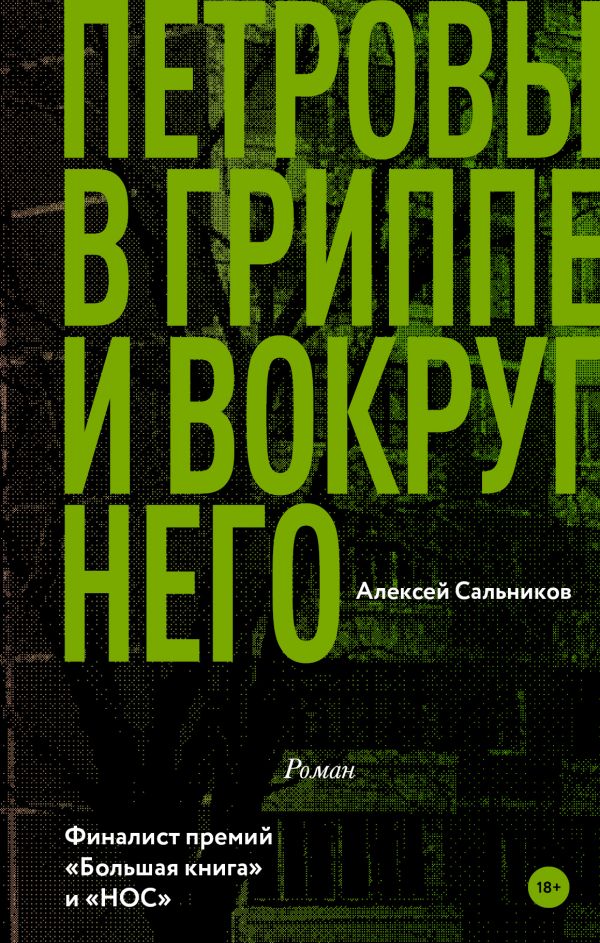 Aleksei Salnikov. Петровы в гриппе и вокруг него. (Petrovy v grippe i vokrug nego) M.: Redaktsiia Eleny Shubinoĭ; Izdatelʹstvo AST, 2018, 411 p.
Aleksei Salnikov. Петровы в гриппе и вокруг него. (Petrovy v grippe i vokrug nego) M.: Redaktsiia Eleny Shubinoĭ; Izdatelʹstvo AST, 2018, 411 p.
Aleksei Salnikov may not be well known to the general public, but he has written an outstanding book, Petrovy v grippe i vokrug nego. The hero of the novel, the recently divorced car mechanic Petrov, goes home by bus and feels that he is getting a flu, so the whole novel is overshadowed by it. All of his subsequent adventures begin with this bus ride and his meeting with Igor, a random acquaintance who lures him into a drinking trip in a catafalque to another strange character – the philosophy teacher. The novel begins slowly, with a lot of subplots, a lot of descriptions of people and places in Petrov’s environment, which at first seem unnecessary. Suddenly everything changes, and the reader is drawn into a hellish madness, writes critic Galina Yuzefovich: “A striking, unique language, a grounded and tangible material world that surprisingly does not exclude fleeting fantasy, and a truly magical ambiguity (whether everything that happens in the novel is a flu hallucination of the three Petrovs, or whether the mystical underside of the world is really revealed for a moment).” In her opinion, it is “an excellent novel and a real pleasure to read,” but its background is the dark side of some main characters’ consciousness, which makes it questionable.
2017
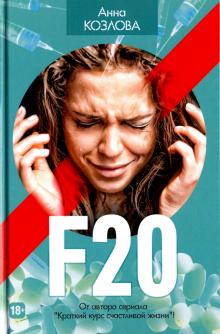 Anna Kozlova. F20. (F20). M.: Ripol-Klassik, 2016, 240 p.
Anna Kozlova. F20. (F20). M.: Ripol-Klassik, 2016, 240 p.
In Anna Kozlova’s novel F20, the heroine lives with the terrible diagnosis of schizophrenia or “F20.” The publisher writes: “Reading this ruthless, funny and deeply dramatic text, one cannot help but ask the question: who should really be considered normal? This novel is not about schizophrenia, but about all the others who live alongside the “normal” majority and pretend they do not exist. Kozlova’s F20 can be read as a case history, but as usual in works with a mad protagonist, the disease is not an individual, but a society. “
2016
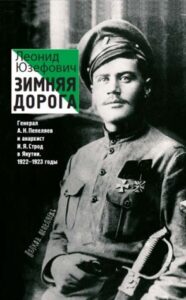 Leonid Yuzefovich. Зимняя дорога. (The Winter Road). M.: ACT, 2015, 432 p.
Leonid Yuzefovich. Зимняя дорога. (The Winter Road). M.: ACT, 2015, 432 p.
Yuzefovich’s Winter Road, published in 2015, won both the National Bestseller Prize and the Big Book Award. Yuzefovich wrote a fascinating documentary novel about the events of the Russian Civil War and the confrontation between two individuals, using archival materials and documents from the Russian Civil War in Siberia. The book describes the confrontation between two extraordinary historical figures during the Russian civil war in the Far East in 1922-23: the white general and poet Anatoly Pepelyaev, who was in charge of the Siberian corps of the White Army, and the Red Army commander, anarchist and future writer Ivan Strod. Strod was responsible for defeating a white general, Anatoly Pepelyaev, during the Yakut Uprising, for which he was awarded the Order of the Red Banner. His fate was not good either, as he became the victim of the Great Purge.
2015
 Sergei Nosov. Фигурные скобки. (Figurnye skobki) M.: Limbus Press, 2015.
Sergei Nosov. Фигурные скобки. (Figurnye skobki) M.: Limbus Press, 2015.
2014
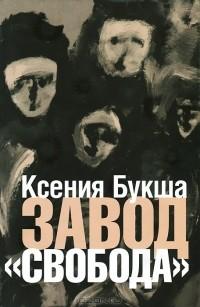 Ksenia Buksha. Завод “Свобода.” (The Freedom Factory) M.: OGI, 2014, 238 p.
Ksenia Buksha. Завод “Свобода.” (The Freedom Factory) M.: OGI, 2014, 238 p.
An economist by training, Ksenia Buksha has worked in finance, marketing, and advertising in her native St. Petersburg, so it’s not surprising that she would write a book about something she understands well – the history of a real military defense factory. Sarah Kapp reviews the novel as an interesting experiment in retelling the Soviet idea through the story of a factory: “While a factory story may not sound particularly exciting, it’s not for nothing that the book won Russia’s National Bestseller Award in 2014. Reading The Freedom Factory is like looking into a kaleidoscope, turning to see what the next prisms will reveal. Forty short chapters – each with its own language and life – bring together excerpts from interviews, monologues, film reels, snapshots and memories of former and current factory workers.”
2013
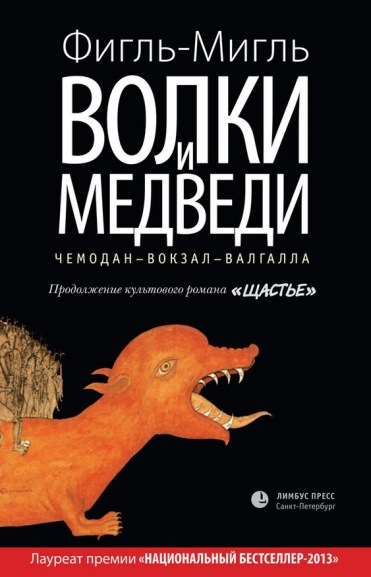
Figgle-Miggle (Ekaterina Chebotareva). Волки и медведи. (Wolves and Bears ) St.Petersburg: Izdatel’stvo K. Tublina, 2013, 496 p.
The book was shortlisted for the National Bestseller Award while still in manuscript, but it used the unoriginal cliché that was a hit in Russia in the first decade of the 21st century. The publisher describes the novel as the story of St. Petersburg in the distant future, which is no safer than a medieval city: police gangs are in competition with drug cartels, armed smugglers and special services, etc. “The Chancellor of Okhta” is obsessed with the idea of building an empire on the ruins of civilization. The protagonist, a bearer of supernatural abilities, carries out a secret mission of the Chancellor, going to the most remote – and dangerous – areas of the city”.
2012
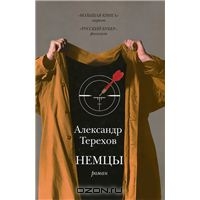 Alexander Terekhov. Немцы. (Germans). M.: ACT, 2012, 572 p.
Alexander Terekhov. Немцы. (Germans). M.: ACT, 2012, 572 p.
2011
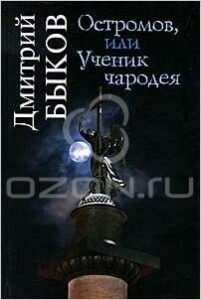 Dmitry Bykov. Остромов, или Ученик чародея. (Ostromov, or the Sorcerer’s Apprentice) M.:Prozaik, 2010, 750p.
Dmitry Bykov. Остромов, или Ученик чародея. (Ostromov, or the Sorcerer’s Apprentice) M.:Prozaik, 2010, 750p.
SuperNatsBest
Zakhar Prilepin won the SuperNatsBest — a special version of the National Bestseller prize worth $100,000 — for his novel in short stories ” Sin”. The SuperNatsBest shortlist consisted of NatsBest winners from the past 10 years. Prilepin won that award in 2008.
2010
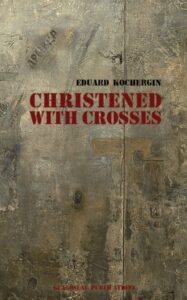 Eduard Kochergin. Christened with Crosses. (Kreshchennye krestami)
Eduard Kochergin. Christened with Crosses. (Kreshchennye krestami)
St Petersburg.: Vita Nova, 2009, 272 p.(Russian) Glagoslav Publications, 2012. (English)
This award-winning memoir is the gripping story of a young boy’s dangerous, adventurous journey from Siberia to Leningrad along the railways of postwar Russia. After his parents are arrested as enemies of the people before World War II, young Stepanich is sent to the Siberian children’s institution. The boy escapes from the orphanage after the end of the WWII in search of his mother. Along the way, he encounters many characters, including a gang of train robbers, stops in a northern Russian village, and displays an inner strength that allows him to triumph over danger and hardship and miraculously find his mother in Leningrad. The publisher says: “Based on a true story of Kochergin’s amazing life, this book depicts the awakening of artistic talent under highly unusual Russian circumstances. It is the memoir of an old man who, as a boy, learnt to find his way between extortionate state control and marauding banditry, the two poles that characterize Russia to this day”.
2009
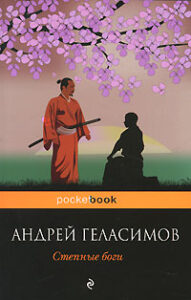 Andrey Gelasimov. Степные боги. (Gods of the Steppe) M.: Eksmo, 2008.
Andrey Gelasimov. Степные боги. (Gods of the Steppe) M.: Eksmo, 2008.
2008
 Zahar Prilepin. Grekh. (The Sin).
Zahar Prilepin. Grekh. (The Sin).
2007
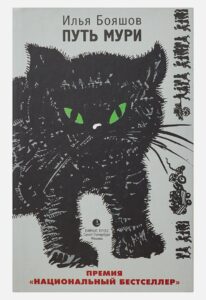 Ilia Boyashov. Path of Moori.
Ilia Boyashov. Path of Moori.
2006
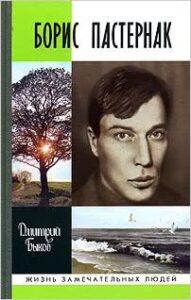 Dmitry Bykov. Boris Pasternak. (Boris Pasternak). M.: Molodaya Gvardia,2006, 896p.
Dmitry Bykov. Boris Pasternak. (Boris Pasternak). M.: Molodaya Gvardia,2006, 896p.
2005
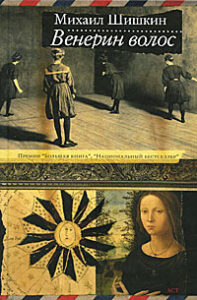 Mikhail Shishkin. Maidenhair (Venerin Volos) M.: ACT, 2005, 540p.
Mikhail Shishkin. Maidenhair (Venerin Volos) M.: ACT, 2005, 540p.
2004
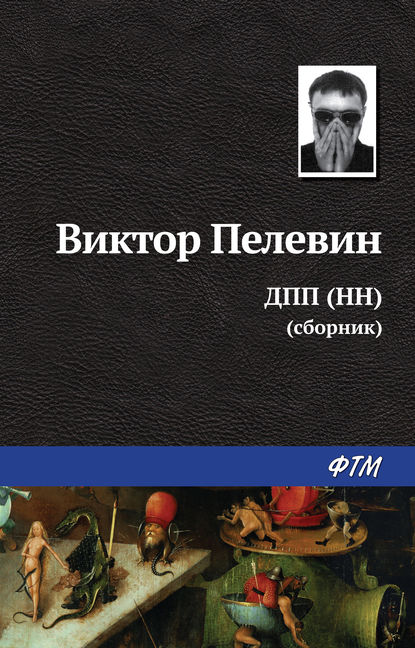 Victor Pelevin. “DPP.NN.” (DPP.NN. Dialektika perehodnogo perioda) M.: Eksmo, 2003.
Victor Pelevin. “DPP.NN.” (DPP.NN. Dialektika perehodnogo perioda) M.: Eksmo, 2003.
2003
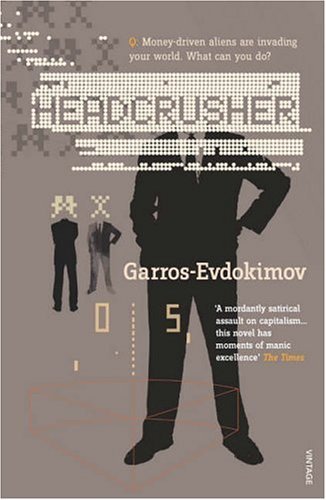 Alexander Garros- Alexei Evdokimov. Headcrusher . (Головоломка)
Alexander Garros- Alexei Evdokimov. Headcrusher . (Головоломка)
2002
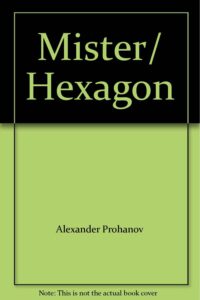 Alexander Prohanov. Mr. Hexogen. (Mr.Hexagon).
Alexander Prohanov. Mr. Hexogen. (Mr.Hexagon).
2001
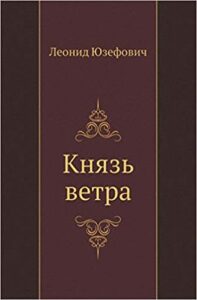
Leonid Yuzefovich. Prince of the Wind. (Kniaz’ vetra) M.: Vagrius, 2001
